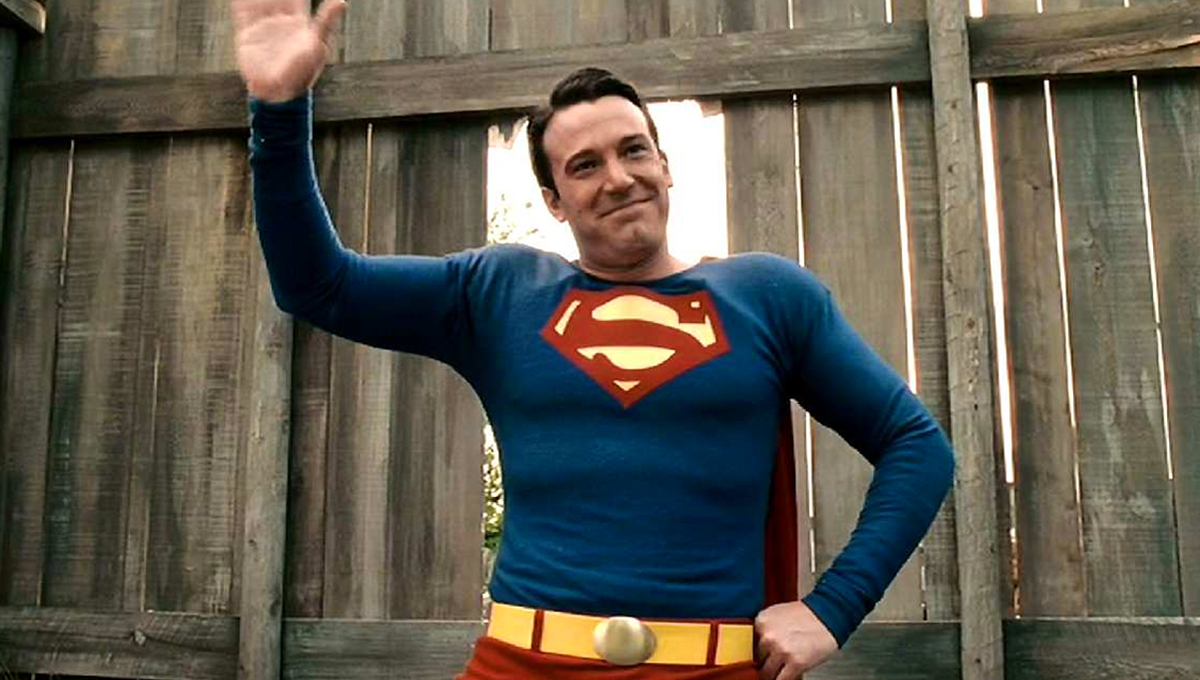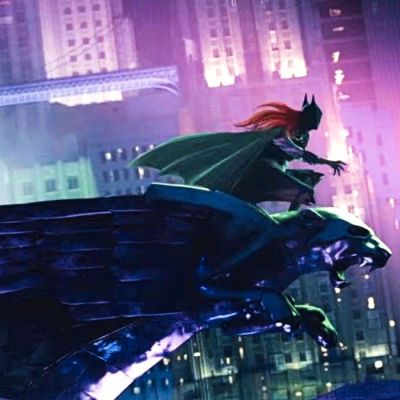While Ben Affleck cemented his cinematic status as Batman in Warner’s DC Extended Universe, he experienced an interesting path to A-list comic book movie stardom. The actor famously starred in the widely-panned 2003 Marvel movie, Daredevil, and just a few years later, would even appear onscreen wearing a Superman costume in 2006’s Hollywoodland, a biopic about 1950s Superman actor George Reeves. However, that was all preceded by a moment in which Affleck’s name was dangled to play Superman properly under the screenwriting auspices of pal and repertory collaborator Kevin Smith. Unfortunately, that opportunity crumbled as quickly as a china shop hosting a Kryptonian street fight.
Indeed, decades before director Zack Snyder cast the actor as a new version of vigilante billionaire Bruce Wayne/Batman for 2016’s Batman v Superman: Dawn of Justice, Affleck faced bright prospects to play DC Comics’ other mascot-level superhero for a Superman reboot project. Contextually, this was during the late-1990s, in which would-be writer Smith—still riding the wave of Clerks’ success—was still the toast of the industry town, and would-be star Affleck was being groomed as a blockbuster marquee star. Thus, pairing the industry’s biggest burgeoning heartthrob headliner with the world’s most famous comic book geek seemed like a smart play for a Superman reboot. However, as Smith tells Yahoo, a studio-mandated collaboration with producer Jon Peters caused a creative quagmire.
“I was writing it for Affleck,” says Smith. “Ben was heating up. Like he was there. I think he’d been hired for Armageddon. … Affleck, he’s a f**king giant, like he’s built like a superhero, built like a giant action figure, particularly with the height. And then he puts on the muscles there too. So, in my head and heart, it was always Ben and Michael Rooker, which was a weird Mallrats reunion.”
The catalyst for Affleck’s A-list ascension was director Gus Van Sant’s 1997 drama, Good Will Hunting, which may have showcased his friend, Matt Damon, as the breakout star alongside the gravitas of Robin Williams, but the film was based off a screenplay Affleck had co-written with Damon. While Affleck only fielded the minor role of a friend to Damon’s eponymous character, his name would nevertheless shine when the duo shook the industry to its core with a surprise 1998 Best Screenplay Oscar win. Yet, it would not be long before the industry’s casting eyes started to drift toward Affleck, whose career as an actor was notably elevated by the role of conceited suit-shop salesman Shannon Hamilton provided by Smith for his comic-book-reference-addled 1995 written/directorial sophomore effort, Mallrats; the seed from which Affleck’s various comic book connections would eventually grow to headlining splendor.
While that film (current cult status notwithstanding,) proved to be an unnecessarily-exorbitant $4 million-losing box office dud, industry forces had given Smith a mulligan, and wrote it up as a quirky loss leader, notably since Smith’s script for a more mature rom-com, 1997’s Chasing Amy, bore promising prospects (and for a fraction of Mallrats’ $6 million budget). That notion would prove correct, and the film became a potent platform for Affleck, who fielded the co-starring role as a comic book creator who tries to deal with his own personal limitations amidst a relationship with sexually-fluid girlfriend (Joey Laruen Adams). That was essentially the birth of Ben Affleck the leading man, leading to a blockbuster breakthrough as the star of director Michael Bay’s 1998 asteroid-assailing cinematic spectacle, Armageddon—especially once that film went on a worldwide summer rampage that grossed $553 million. Thus, with Warner coincidentally contemplating a Superman reboot, fortune seemed to favor Affleck/Smith.
So, what could have possibly derailed this most auspicious of Superman endeavors? The quick answer, according to Smith, is famed producer Jon Peters. Having been pulled into studio Warner’s gravitational pull after being tapped write a supernatural project called The Architects of Fear, Smith obtained a copy of the reboot script, initially titled Superman Reborn, which, using his comic book savvy, he eviscerated at a meeting; an act that yielded him the dream job of a re-write opportunity. However, said opportunity came with the caveat of collaborating with Peters, an iconic-but-eccentric Hollywood figure who was recently portrayed by Bradley Cooper in director Paul Thomas Anderson’s Licorice Pizza. True to his perceived eccentricity, Peters put some odd, seemingly non-negotiable ideas on the table, notably that Superman would not fly, saying “that flying s**t looks cheap to me.” He also wanted to ditch the traditional red and blue costume, due to it looking, “too pink,” and demanded a third-act battle with a giant spider.
Yet, in Peters’ defense, some of those ideas are workable, and Superman’s earliest appearances in the comics actually portrayed him as making mighty stratospheric leaps instead of flying. Thus, Smith was nevertheless prepared to work with, as he put it, the “weird parameters,” put in place by Peters. “But for me, it was like, ‘OK, I’m going to make it work,’” he says. “Because I always had the ability to walk away from it at the end of the day. … So, whatever they threw at me, I was like, ‘Great.’ As long as I could make it work in my head and heart as a comic book fan, I could kind of go with it.” Thusly, work on the script, which would be renamed Superman Lives, moved forward, manifesting as a loose adaptation of 1992’s “Death of Superman” comic book storyline.
Read more
However, the coup de grace to Smith’s Superman screenwriting tenure would occur when Peters pushed for Sean Penn—still fresh from an Oscar-nominated role as a death row inmate in 1995’s Dead Man Walking—for the title role, an idea—ultimately unrealized—that completely contradicted the work Smith had put in, having envisioned a film with recurring players Affleck as Superman opposite the enjoyably ornery Michael Rooker as Lex Luther. “[H]e wanted to reinvent it,” laments Smith. “He wanted something gritty, graphic and grownup. He essentially wanted like what Zack Snyder eventually did.” Naturally, a conflict ensued, as Peters stood steadfast for his ideas. “He goes, ‘Look in his eyes in that movie, he’s [got] haunted eyes, the eyes of a killer,’” Smith recalls. “And I was like, ‘Dude, it’s Superman. You know, that’s not how most people think of Superman.”
The lack of cohesion led to the opportunity of a lifetime abruptly ending for Affleck and Smith, not with a brash bang, but an ignominious whimper. That’s because Warner would eventually procure a legendary director—one who’d led the studio to success with the Michael Keaton-starring Batman films—in Tim Burton to tackle Superman Lives. Of course, with Burton being a unique visionary, Smith’s ideas were quickly discarded in an act that occurred with arguable disrespect by the studio, seeing as Smith wasn’t informed about his removal until well after the fact. While Burton’s Superman tenure, defined by his casting of Nicolas Cage, famously came to its own screeching halt, Smith’s stab at Superman was relegated to the heap of abandoned ideas.
“I remember I was in Connecticut, I was doing a press tour, Chasing Amy, Smith recalls. “My agent called me. … And I was like, ‘When do I have to submit another Superman draft? And he goes, ‘You’re done.’ You did your two drafts and they’re not bringing you back. Tim’s bringing on somebody else. I was like, ‘All right.’ And you know, I wasn’t sad. They spent so much money; they honestly spent between $25 million and $50 million developing a movie that never happened.”
Nevertheless, Affleck, by way of a divisive Daredevil performance that—among several screen sins—left moviegoers with traumatic ‘00s-era emo flashbacks from the needle drop of Evanescence’s “Bring Me to Life,” and an onscreen examination on the dark end of Superman George Reeves, would eventually join the immortal annals of big screen Batman actors. His debut in the aforementioned Batman v Superman was quickly followed by a cameo in 2016’s Suicide Squad, and he became the fulcrum on the which the titular team of 2017’s Justice League (and Zack Snyder’s uber-extended 2021 recut) hinged. “Batfleck” will be back for one final run in The Flash, which, due to the multiverse travails we have come to expect from comic book movies, will not only see him join Ezra Miller’s titular speedster, but Michael Keaton’s iconic iteration of the Caped Crusader as well.
The Flash will apparently aim to bring Batmen together, currently scheduled to hit theaters on November 4.


